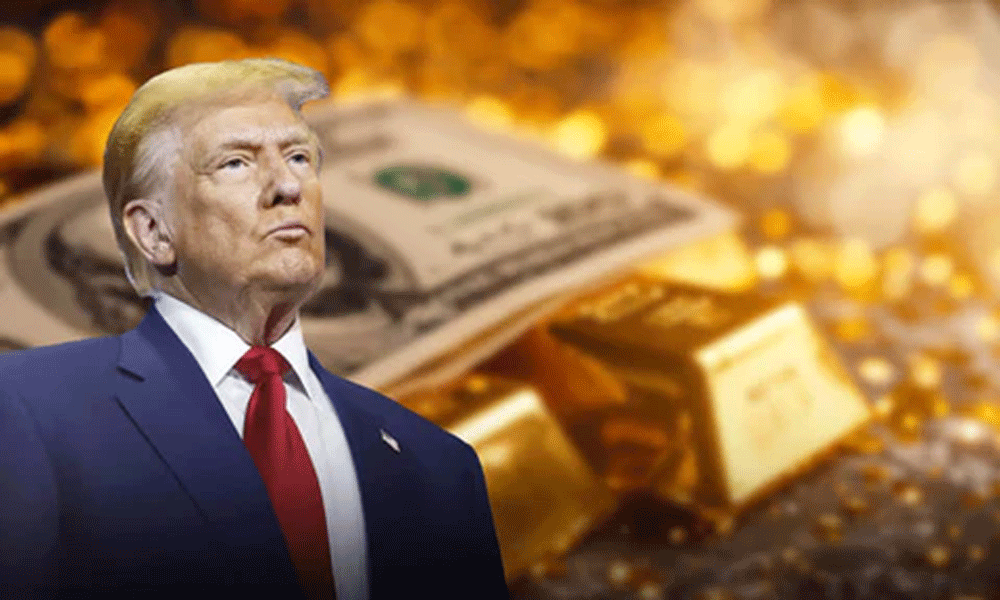
The global economy in 2025 is projected to face significant uncertainty, influenced by U.S. policies under President Donald Trump. Inflation risks loom, gold and USD are expected to remain strong, and there is potential for certain economic bubbles to burst.
Uncertainty ahead
The global economy in 2025 is predicted to remain unpredictable, marked by heightened economic tensions. While robust growth is possible, there is also a risk of stagflation - a scenario of stagnant economic activity combined with high inflation.
Inflation could rise again, exacerbated by a potential resurgence in trade wars initiated by Donald Trump with China and other nations. Such conflicts could push commodity prices higher, drive up gold prices, and strengthen the U.S. dollar (USD).
The USD, which has already surged significantly, may rise further, potentially triggering turbulence in global financial and currency markets. This could lead to capital outflows from emerging markets, putting pressure on exchange rates and economic stability in nations such as Vietnam.
Stagflation remains a concerning scenario, particularly given Trump's assertive stances on trade and immigration policies. A "hard landing" for the U.S. economy could have a domino effect, impacting China, Europe, and nations like Vietnam.
BlackRock, the world’s largest asset manager, warned in its latest report that the U.S. economy could experience a hard landing if Trump’s policies falter. Persistent inflation may escalate due to demand-pull effects, economic growth could slow sharply, and valuations of artificial intelligence (AI) firms could plummet - resulting in an AI bubble burst.
Positive outlook amidst risks
Despite these concerns, many reports, including those from BlackRock, Goldman Sachs, and S&P Global, remain relatively optimistic compared to predictions from early 2024.
Goldman Sachs projects global economic growth to reach 2.7% in 2025, with U.S. growth outperforming expectations at 2.5% (up from a previous forecast of 1.9%). Similarly, the OECD predicts global GDP growth of 3.3%, slightly higher than the 3.2% forecast for 2024.
However, the eurozone’s growth is expected to slow to 0.8%, below the 1.2% forecast by Bloomberg economists, due to potential trade policy shifts under Trump’s administration.
Immediately following Trump’s reelection, global financial markets witnessed significant changes. The USD strengthened sharply, central banks accelerated rate cuts, and China injected liquidity to support its economy.
Gold, USD, and Vietnam's economy
S&P Global predicts heightened inflationary pressures in 2025, prompting the U.S. Federal Reserve (Fed) to halt rate cuts earlier than anticipated. This would strengthen the USD further.
Goldman Sachs revised its interest rate projections, indicating the Fed will likely maintain rates through January, followed by cuts in March, June, and September. The terminal rate is now expected to be 3.5%-3.75%, slightly higher than the previous forecast of 3.25%-3.5%.
Gold prices are expected to benefit from global rate cuts and central bank demand. However, the pace of increase may slow if rate cuts are reversed. The World Gold Council (WGC) forecasts gold prices to fluctuate significantly in 2025, averaging around $2,750/ounce (a 14% increase from 2024), with a range of $2,500-$3,200/ounce.
According to Nicky Shiels of MKS PAMP, the path to $3,000/ounce will depend on the Fed’s response to inflation signals. A less cautious Fed could weaken the USD, driving gold prices higher in late 2025.
For Vietnam, global economic volatility could introduce new challenges. Economic expert Dr. Nguyen Tri Hieu warned that Trump's aggressive trade policies could severely impact Vietnam. However, Barry Weisblatt David, Head of Research at VnDirect Securities, sees potential benefits from Trump's proposed tariffs on China, Mexico, and Canada, which may create opportunities for Vietnam.
Risks and opportunities for Vietnam
High inflation risks in the U.S. could keep the USD strong, putting pressure on the Vietnamese dong (VND). VnDirect experts anticipate that the State Bank of Vietnam may need to raise interest rates if exchange rate pressures escalate.
Weisblatt believes Trump is unlikely to impose additional tariffs on Vietnam, given his favorable relations with the country. Instead, the U.S. may focus on trade defense measures, particularly regarding the origin of goods exported to America.
According to Dr. Luong Van Khoi, Deputy Director of the Central Institute for Economic Management (CIEM), shifting U.S. policies on China could divert investment flows from China to Vietnam.
Manh Ha